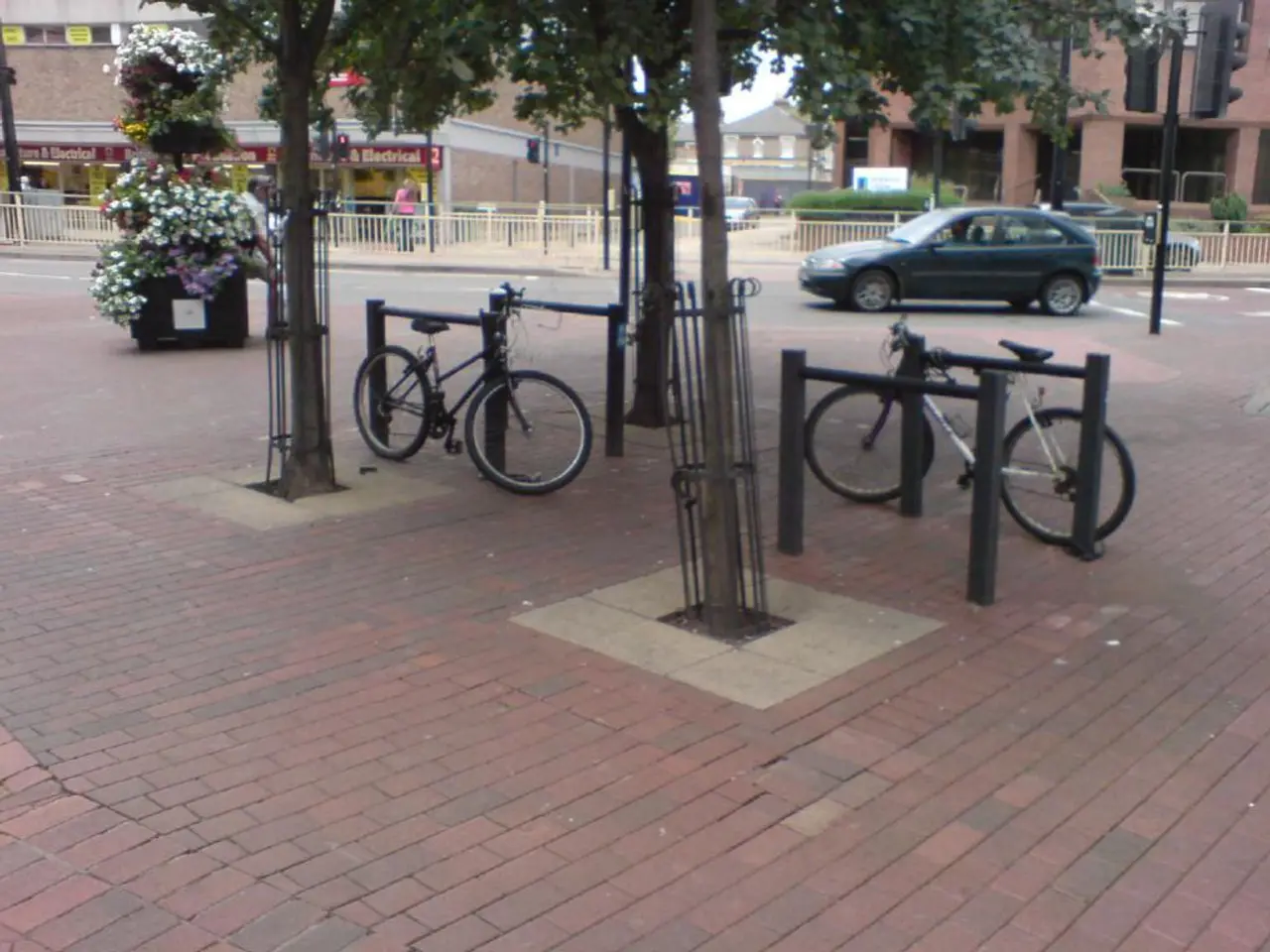Tucson City Council has made a decision to terminate the Blue Data Center Project
In recent times, two highly anticipated data center projects in the United States have been called off, marking a growing trend of local resistance against such infrastructure developments. The cancellations of Amazon's billion-dollar data center project in Becker, Minnesota, and the Project Blue Data Center in Tucson, Arizona, have left local officials and developers disheartened, but with a glimmer of hope for future reconsideration.
The Amazon data center in Becker, Minnesota, was halted primarily due to legislative changes that rolled back tax incentives, coupled with growing uncertainty regarding permits and utility agreements. The project, initially expected to create thousands of construction jobs and significantly impact the local economy, is now met with disappointment from local officials who are hoping Amazon might reconsider in the future [1].
Similarly, the Tucson City Council has scrapped Project Blue, a large-scale data center planned to span 290 acres. The project, which had recently been approved by the Pima County Board of Supervisors, faced community opposition due to its high power and water demands, despite plans to use 100% renewable reclaimed water and significant sustainability pledges. Project Blue was expected to create hundreds of permanent and thousands of construction jobs, with a $1.2 billion construction investment and additional economic impact. However, growing community concerns about resource consumption and legislative shifts have led to its cancellation [2].
The planned footprint of the Project Blue Data Center was up to 2.5 million square feet across 10 buildings. The total investment in the project was a staggering $3.6 billion. The project was developed by Beale Infrastructure and the land was bought by Humphrey's Peak Properties, LLC. The project required annexation by the City of Tucson to secure municipal water services, but the annexation process has ceased due to the cancellation of the project [2].
The Project Blue Data Center was projected to create 180 permanent jobs by 2029 with an average salary of $64,000 (requested increase to $75,000). The planned land sale for the project was $20.8 million, contingent on annexation. Construction of the Project Blue Data Center was expected to begin in late 2025 or early 2026, with the first data halls going live by 2027, but those timelines are now defunct following the cancellation [2].
In addition to using 100% renewable reclaimed water for cooling and operations, Project Blue had planned to fund an 18-mile reclaimed water pipeline and a 30-acre aquifer recharge facility to replenish groundwater used during operations [2]. The project had also secured a long-term energy agreement with Tucson Electric Power for clean energy, including solar and battery storage integration [2].
These cancellations reflect a broader trend of increasing local resistance to large data centers, focused on their environmental footprint and shifts in state-level incentives, even as data center developments continue elsewhere in the country. Both projects highlight tensions between economic development ambitions and sustainability or resource concerns in communities hosting such infrastructure [1][2].
Despite the boom in data center developments around the country, Project Blue joins a growing list of data center projects facing a backlash from local communities. As the debate over the balance between economic growth and environmental responsibility continues, it remains to be seen how future data center projects will navigate these complex issues.
References: [1] MPR News. (2022, May 13). Amazon cancels data center project in Becker, Minn. Retrieved from https://www.mprnews.org/story/2022/05/13/amazon-cancels-data-center-project-in-becker-minn
[2] Arizona Daily Star. (2022, May 18). Tucson's Project Blue data center is dead. Retrieved from https://tucson.com/news/local/tucson-s-project-blue-data-center-is-dead/article_f8c1f088-3014-11ed-a53a-77d7f044926b.html
- The cancellation of Amazon's data center in Minnesota and Project Blue in Tucson, despite offering construction jobs and economic impact, show a rising trend of local opposition towards infrastructure developments, concerned about their environmental footprint and resource consumption.
- The significant data center projects, which were anticipated to create thousands of jobs, have been disrupted due to legislative changes affecting tax incentives, community opposition, and growing uncertainty regarding permits and utility agreements.
- In the face of legislative shifts and environmental concerns, the economic development ambitions and sustainability targets of these data center projects are in tension, impacting the overall progress of the industry.
- Climate-change considerations and environmental-science studies are playing a pivotal role in the general-news discussions as data centers, despite offering potential financial benefits, are scrutinized for their environmental impact.
- The scrapped Project Blue Data Center had been designed to use 100% renewable reclaimed water for operations and fund extensive sustainable infrastructure projects like an 18-mile reclaimed water pipeline and a 30-acre aquifer recharge facility.
- Concerns regarding data centers' environmental impact and resource consumption are increasingly being raised in the context of politics, making it imperative for the industry to adopt more responsible and sustainable practices in order to gain public acceptance for future projects.




